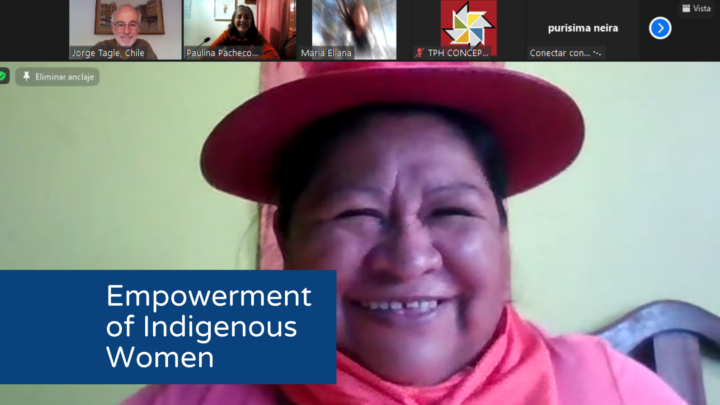A powerful tool has been constituted by CEFE for the trainings developed by the “Originarias’ Program: Empowerment of Indigenous Women in Northern Chile” carried out by UN Women. The main objective of this program is to promote leadership, participation and economic and social empowerment of indigenous women in Chile.
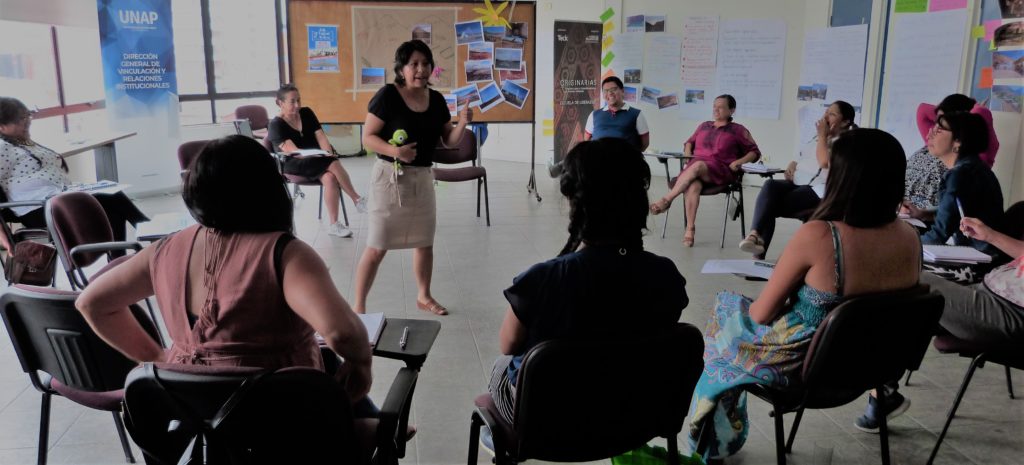
With this in mind, at the end of 2018, the UN Women requests from the CEFE Partner “Fundación Trabajo para un Hermano de Concepción” (TPH Concepción) a ToT to upskill facilitators for the training activities of the Originarias’ Program. At the same time, the UN Women asked us to prepare a manual to train indigenous women in entrepreneurship and business management.
In this collaboration with the program, the proposal of TPH Concepción contained using the CEFE methodology and adapting it to the context of native people. Integrating cultural differences and the diversity of territorial and identity dynamics that are expressed among indigenous women and making visible their particular problems and make them protagonists of their own empowerment.

The first ToT in 2019 was in Iquique in the north of Chile. This ToT was facilitated by three CEFE Masters: Cedy Arones – from CEFE Peru, Paulina Pacheco and Jorge Tagle – from TPH. 12 facilitators were trained and went on to collaborate in various entrepreneurship and leadership schools organized by the Originarias’ Program and supported by TPH.
In all schools CEFE exercises are applied, adapted to the cultural reality of the participating indigenous women. In each experience, we use elements from the local context and in all peer discussion, the cultural and gender issues are always present. Through the peer learning, experienced participants can share with participants who have similar issues but are less familiar with solutions.
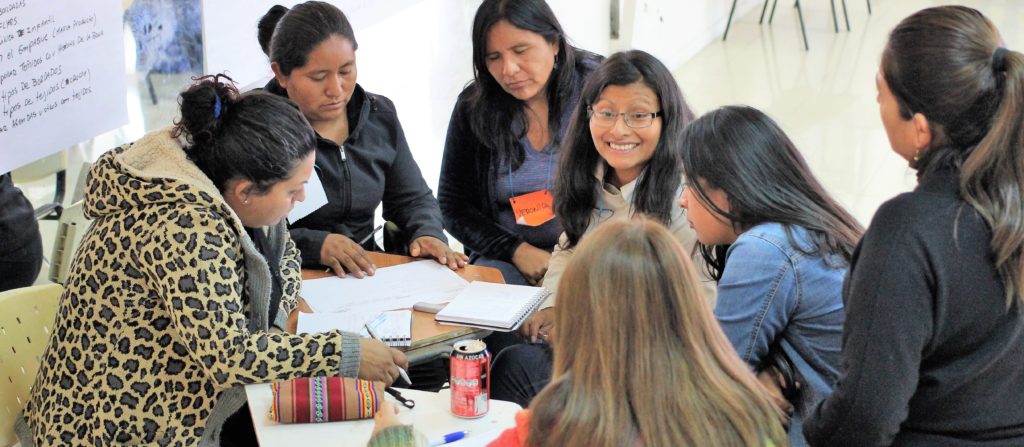
All this experience, which is developed by the TPH facilitation team but is significantly nourished and complemented by the cultural contribution of each participant, has allowed us to demonstrate that the experiential learning exercises of CEFE and all its methodology is a powerful tool to contribute to the empowerment of indigenous women, enhancing their leading role in society and local economy.
Our CEFE team strives to maintain rigorous facilitation at each stage of the CEFE experiential learning cycle, but with adaptations that make each exercise more familiar and relevant to the participants. The inclusion of cultural elements manages to enrich the knowledge that is built together, contributing to the development of social and entrepreneurial skills that enhance the empowerment of indigenous women and their contribution to the community.
In the Andean cultures, from where the participants are from, it is common to learn from the traditional stories. This true wisdom is one of the many examples from their culture that we were including in the CEFE exercises.
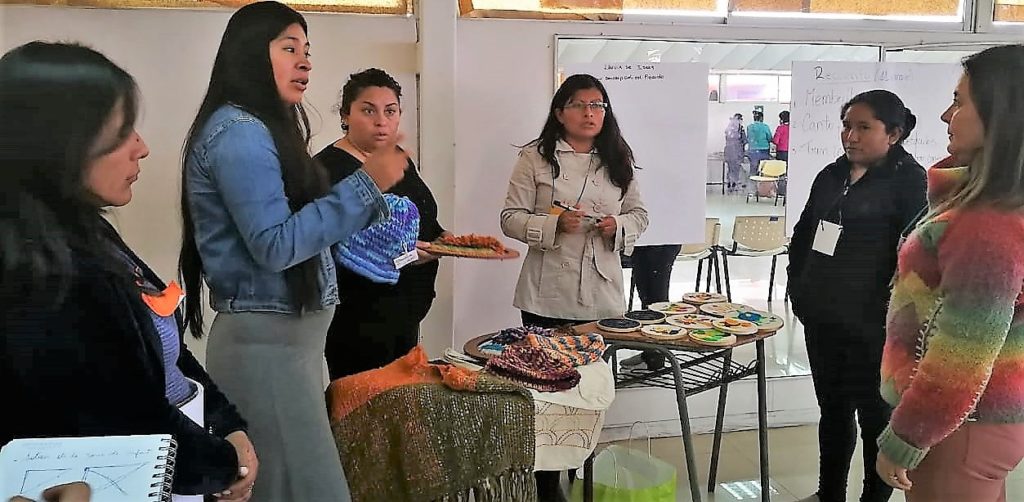
Between November and December 2020, we facilitated an online ToT for 18 indigenous leaders. This online version followed the same route as a face-to-face ToT but was shorter, with only one practice per participant. Once again, and with all the challenges involved in working online from isolated locations in the Andes, we were able to get the participants to make adaptations to the exercises in their practices, now in the virtual training room. Beautiful initiation rites, thanks to Mother Earth and to the ancestors motivated the participation and generated a great climate of trust.
We have worked our way through starting with the Personal Entrepreneurial Characteristics, ending on business management and evaluation. In order to include the ancestral Andean worldview of business, we have included tools of what is known as regenerative economy, which has been very appropriate for the future enterprises of the participants.

Throughout the project we observed with great satisfaction this virtuous relationship between the CEFE team of TPH Concepción and the Originarias’ program. Every day in our project live, reinforces us in our mission to collaborate in their empowerment of our country Chile and to advance towards what the indigenous peoples call the “buen vivir”, the “Suma Gamaña” Aymara and the Mapuche “Küme Mongen”.
In 2021, we will continue to train CEFE facilitators to work with the indigenous world. The challenge is to contribute to the formation of a network of facilitators in different regions of Chile who are working for the empowerment of indigenous women and the strengthening of their economic, social, and cultural enterprises.
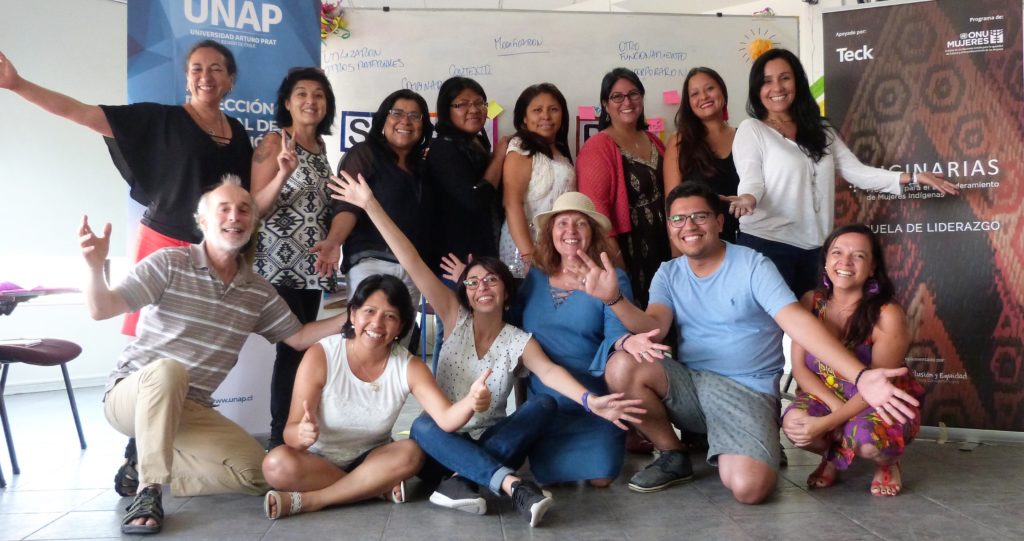
Prepared by: CEFE Trabajo para un Hermano de Concepción
Jorge Tagle


